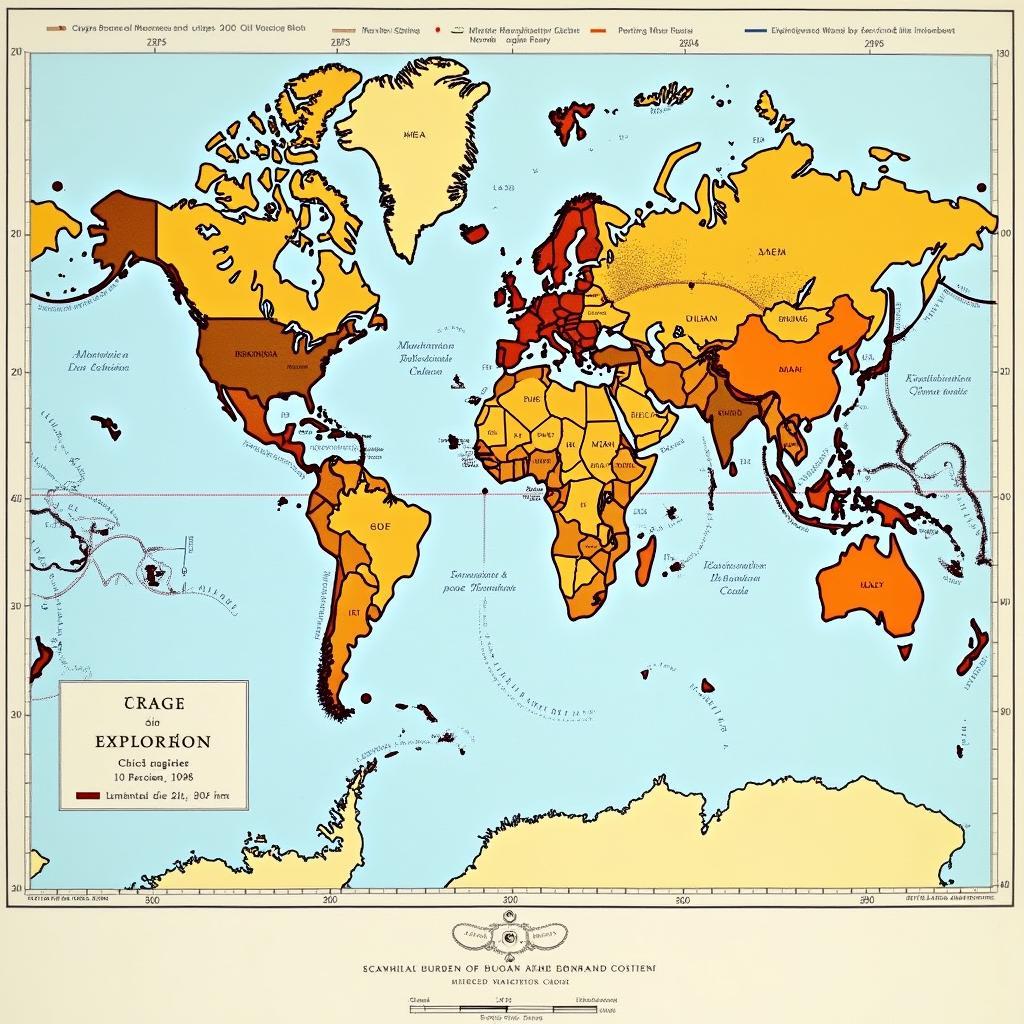The age of European expansion, spanning from the late 15th to the early 20th centuries, brought about profound changes not only to the world map but also to the very fabric of European society. The influx of new resources, ideas, and cultures from across the globe had a transformative effect, reshaping European economies, social structures, and even its very sense of self.
Economic Transformations: From Mercantilism to Industrial Might
One of the most immediate impacts of European expansion was the dramatic shift in its economic landscape. Driven by mercantilist ambitions, European nations sought to establish colonies and control trade routes, leading to an unprecedented accumulation of wealth. The influx of gold, silver, and raw materials from the Americas and elsewhere fueled the growth of European economies, particularly in nations like Spain, Portugal, and later, England and France.
 European trade routes during the Age of Exploration
European trade routes during the Age of Exploration
This newfound wealth, however, was not without its consequences. The influx of silver from the Americas, for instance, while initially stimulating economic activity, also led to inflation, particularly in Spain. The rise of mercantilism, with its emphasis on national wealth and protectionist policies, also led to increased competition and conflict between European powers.
Furthermore, the establishment of colonies and the transatlantic slave trade provided European powers with access to cheap labor and resources, fueling the growth of industries like sugar production and shipbuilding. This marked the early stages of a global economic system, with Europe at its center, that would have lasting consequences for both the colonizers and the colonized.
Social Upheaval and the Rise of New Classes
The economic transformations brought about by European expansion were inextricably linked to profound social changes within Europe itself. The influx of wealth and the growth of new industries led to the rise of a new merchant class, whose wealth and influence challenged the existing social order dominated by the landed aristocracy.
The growth of trade and exploration also created opportunities for social mobility. Individuals from lower social strata could find fortune and status through exploration, trade, or by joining the growing colonial administration. This newfound mobility, however, was often accompanied by exploitation and social unrest, as the gap between the wealthy and the poor widened.
Moreover, the transatlantic slave trade, while enriching some, had a devastating impact on the lives of millions of Africans who were forcibly transported to the Americas. This brutal trade in human beings had far-reaching consequences, shaping racial ideologies and contributing to the development of a global system of inequality that persists to this day.
Intellectual Ferment and the Scientific Revolution
The encounter with new cultures and civilizations through exploration also had a profound impact on European thought and worldview. The discovery of new lands and peoples challenged long-held beliefs and sparked a spirit of intellectual curiosity.
Naturalists, geographers, and scientists accompanied explorers on their voyages, documenting new species of plants and animals, mapping unknown territories, and collecting data that would challenge existing scientific theories. This influx of new knowledge contributed to the Scientific Revolution, a period of unprecedented scientific advancement that transformed European understanding of the natural world.
Furthermore, the exposure to different cultures and belief systems, while often leading to misunderstanding and conflict, also fostered a greater awareness of the diversity of human experience. This, in turn, contributed to the Enlightenment, a philosophical movement that emphasized reason, individual liberty, and tolerance, and which would have a profound impact on the political and social landscape of Europe and beyond.
Conclusion: A Legacy of Transformation and Interconnection
The impact of European expansion on European society was multifaceted and far-reaching. It transformed European economies, reshaped social structures, and sparked intellectual revolutions. While the Age of Exploration brought about periods of great progress and innovation, it also came at a high cost, leaving a legacy of colonialism, slavery, and exploitation that continues to shape the world today.
Understanding the complex and often contradictory legacy of this period is essential for navigating the challenges of a globalized world and fostering greater understanding and cooperation between cultures. By learning from the past, we can work towards building a more just and equitable future for all.